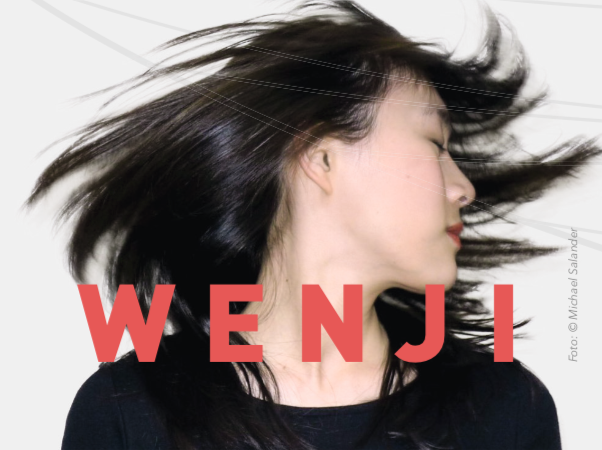DIS-PLACE-MENT
Wenji: In search of home

First European performance of Bun-Ching Lam’s chamber opera "Wenji: Eighteen Songs of a Nomad Flute"
To mark the opening of Heidelberg University’s new CATS Centre, KlangForum Heidelberg e.V. and the Baden-Württemberg Academy of Performing Arts join forces with the Dresden University of Fine Arts, Heidelberg University’s Centre for Asian and Transcultural Studies (CATS) and the Confucius Institute Heidelberg to stage the first European performance of the chamber opera “Wenji” by Lam Bun-Ching (New York / Paris), who spent her formative years in Macao and Hong Kong. The performances took place in Ludwigsburg and Heidelberg from 17 to 21 July 2019.
“Wenji” is a musical drama revolving around the fate of the young poetess Cai Wenji. After growing up in the cosmopolitan imperial city of Chang’an (now Xi’an) in the Han era (2nd century AD), she is kidnapped by ‘barbaric nomads’ and borne off to Mongolia. After 12 years in exile, a Chinese envoy offers to have her taken back to her home town, which has now become alien to her. Her husband, Hun chieftain Zuoxian, allows her to return on condition that she leaves their sons in his custody.
Does Wenji really return “home”? Where might that be? Her tragedy lies in the displacement between her past life, the search for roots in the present and an uncertain future. As she prepares to leave the nomads, Wenji sings: »Alone I go home without the children, when I arrive I miss home every day,« continuing in Chinese »仰天長嘆,哭無淚« which means “I look up to the heavens, heave a deep sigh and weep. But no tears come.”
Poetess and composer Cai Wenji (177-250) is an historical figure. Her »Eighteen Songs of a Nomad Flute« are an expression of her isolation and homesickness. The new production juxtaposes the chamber opera with contemporary literary texts by authors like Rose Ausländer and Ingeborg Bachmann and thus bridges the huge gap between the times of Cai Wenji and the present.
In conjunction with Heidelberg University’s Centre for Asian and Transcultural Studies (CATS), the Confucius Institute Heidelberg, the Dresden University of Fine Arts and (for the first time) the Baden-Württemberg Academy of Performing Arts (Ludwigsburg), the musicians of the SCHOLA HEIDELBERG and the ensemble aisthesis&;set out on another foray into undiscovered transcultural territory and look forward to joining forces with renowned guests and the Chinese instruments and musical styles they bring with them.
The director is Johann Diel. The production has been accepted as the BA thesis with which he graduates from the Baden-Württemberg Academy of Performing Arts.
Staging and costumes: Romy Rexheuser | SCHOLA HEIDELBERG | ensemble aisthesis | musical director: Walter Nußbaum




